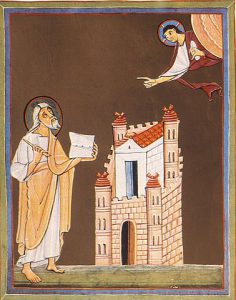
The Spiritual Blindness of a Wealthy Church
The letter to Laodicea provides a challenging conclusion to the seven letters. It has a distinct resemblance to God’s word through Old Testament prophets like Isaiah. The people of God at Laodicea need a significant and immediate correction to their trajectory. The most ominous aspect of the letter is the idea that a church could become so blind to her spiritual poverty. Her people have wealth, which can be a blessing from God according to Proverbs, but her wealth is not a blessing. It gives the Laodicean church a sense of well-being and security, and even leads her to boast about her good situation. Her wealth contributes to her spiritual blindness. Jesus, “the faithful and true witness” (3:14), challenges her to see herself as the poor, naked, and blind church that she truly is (3:17). Her most pressing need is spiritual sight so that she might see her sin and repent of it. If she returns to the Lord, she can hope to see again, to wear the white garments of the faithful Christian, and to store up true treasures in heaven (3:18). Jesus reminds her of his love for his people and invites each one of them to renew their fellowship with him (3:19-20). There is still hope for them, but they must respond to his invitation or be rejected (3:16). For those who respond to the invitation, they can hope to become a conqueror who conquers like Jesus conquered, namely, through suffering and obedience.
The Challenges of the Laodicean Letter for Christians Today
The Laodicean letter is a challenging letter. It challenges Christians to pray to the Lord to reveal their blindness and to open their eyes. It challenges those with money to examine themselves and to see whether the trajectory of their life runs parallel to the Laodicean church. It challenges Christians to repent of their sins and to live a life of obedience, so that they might be commended by the Lord in the day of judgment. It closes with an important hint that the road of the conqueror will be similar to the road that Jesus walked in order to conquer the Devil. Jesus’ road to exaltation took him through suffering. Should those who follow in his steps expect anything different from life in this world?
Sources:
These paragraphs are slightly edited portions of my book:
Paul Hoskins, The Book of Revelation: A Theological and Exegetical Commentary, pp. 118-19 (those pages provides further sources and footnotes that I have omitted above).
